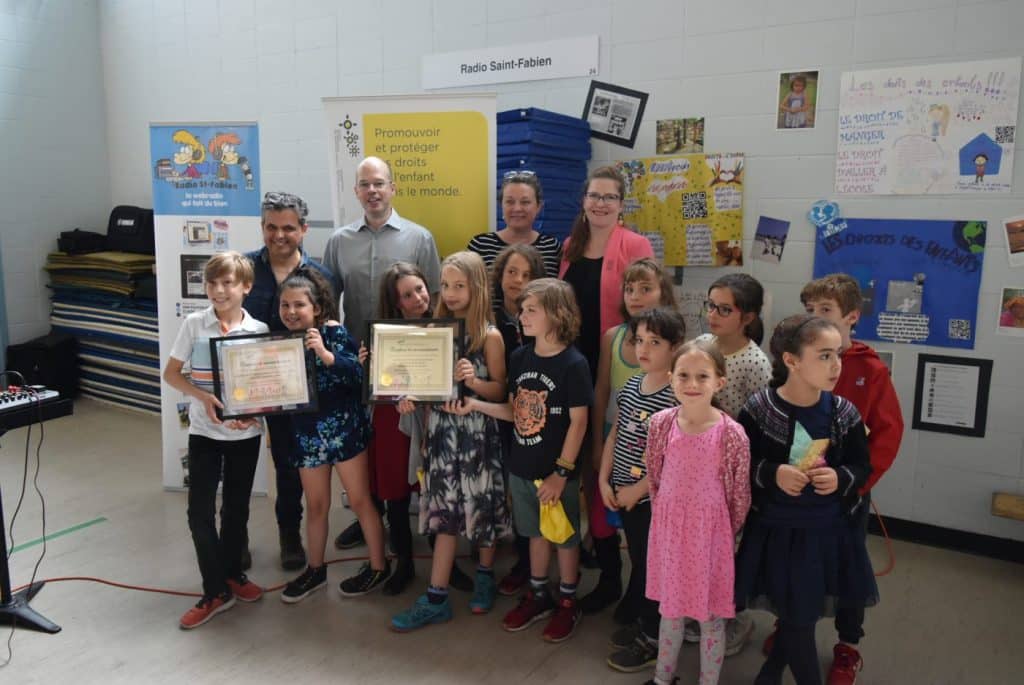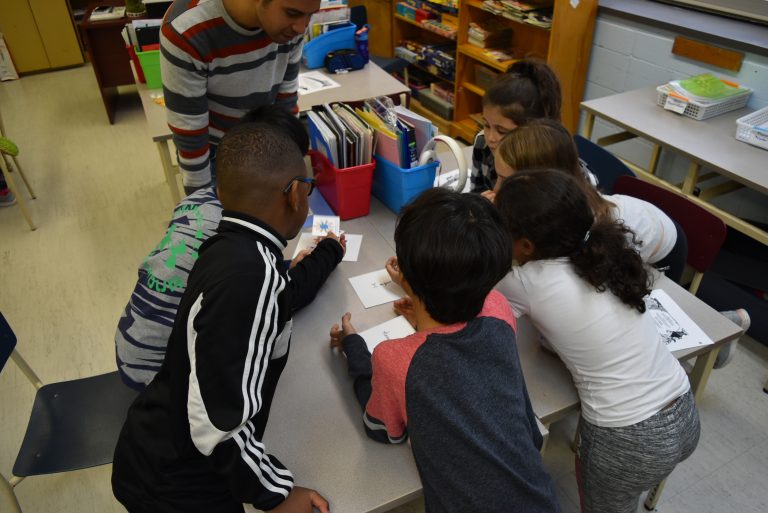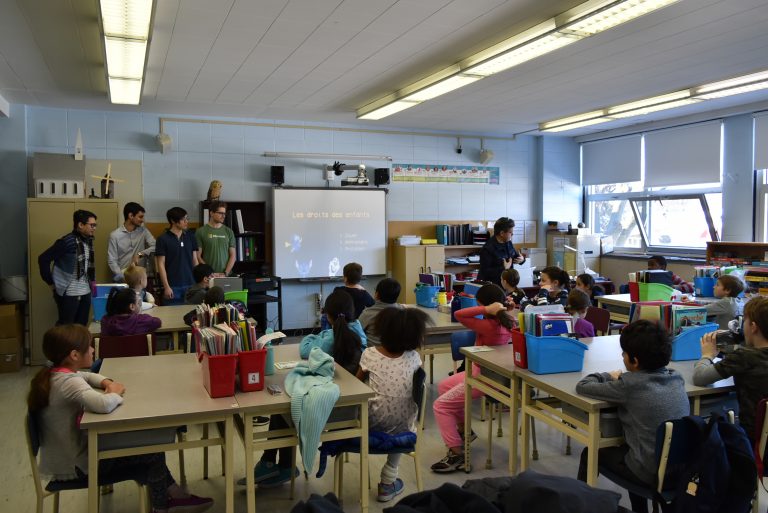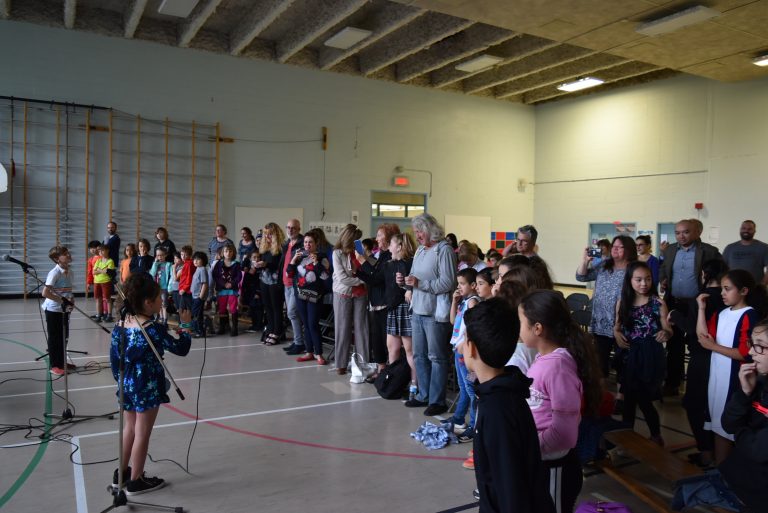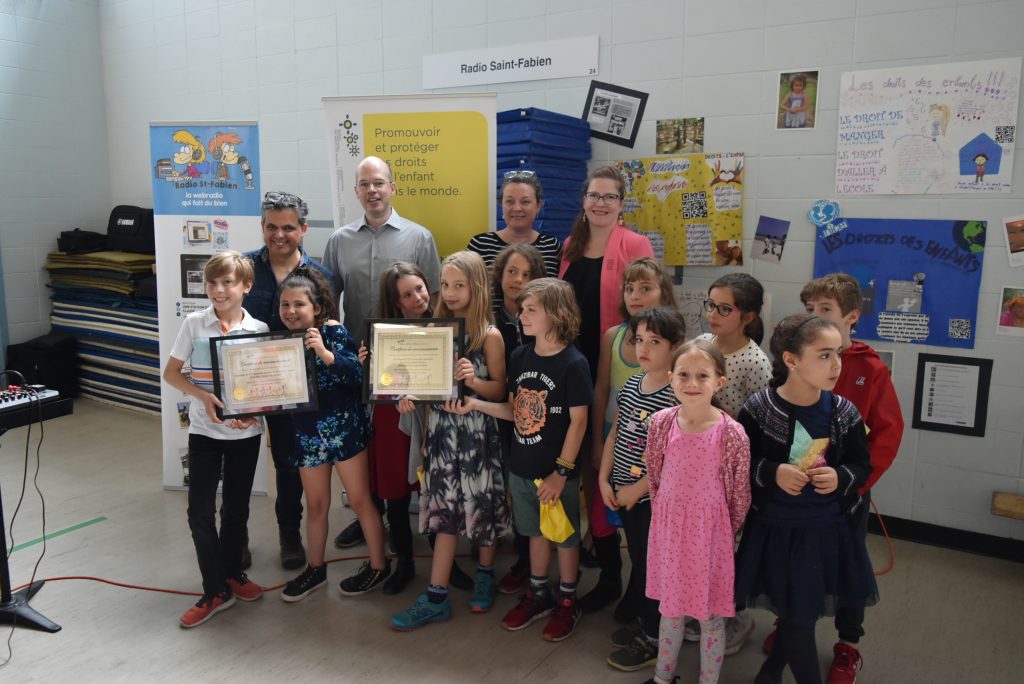Par le Bureau international des droits des enfants
À l’occasion de son 25e anniversaire et pour célébrer les 30 ans de la Convention relative aux droits de l’enfant (CDE) des Nations Unies, le Bureau international des droits des enfants (IBCR, le Bureau) s’est lancé dans un projet novateur : la création d’un jeu vidéo pour sensibiliser de manière ludique les filles et garçons du Canada et d’ailleurs sur leurs droits universels et fondamentaux.
Alors qu’il est reconnu que la jeunesse manipule les nouvelles technologies de façon précoce et y consacre du temps et de l’intérêt, aucun outil en ligne n’est dédié aux droits de l’enfant au Québec et au Canada. De plus, la Convention et ses articles sont peu connus des enfants et du public en général. L’IBCR a donc souhaité remédier à cette situation en créant un jeu vidéo destiné aux enfants, et réalisé avec eux : « Détective en mission pour les droits de l’enfant ». Tout premier jeu vidéo éducatif du genre, il vise à sensibiliser les enfants et à les inciter à exercer leur rôle de citoyen au sein de la société pour des changements réels et durables.
Contexte de création du jeu vidéo
Le Bureau a confié la création technique du jeu à l’École Polytechnique de Montréal, qui a accepté le projet dans le cadre de son programme d’Étude. Quatre étudiants se sont ainsi attelés à cette tâche durant plusieurs mois, comme projet professionnalisant. Le graphisme a quant à lui été pris en charge par trois étudiant-e-s de l’École Nationale des Arts et Métiers ParisTech (France).
L’une des lignes directrices de l’IBCR étant de placer les enfants au cœur de la promotion de leurs droits, la conception du jeu vidéo s’est faite avec la participation de deux classes de primaire des écoles montréalaises Sainte-Cécile et Saint-Fabien. La mobilisation des enfants s’est ainsi intégrée dans le cadre du programme « Éthique et culture religieuse » offert à tous les élèves du primaire et du secondaire au Québec.
L’implication des enfants durant toute la mise en œuvre de ce projet a été primordiale et s’est traduite au travers des différentes étapes de la conception, du développement et de la promotion du jeu. Elle a permis d’intégrer leurs points de vue et leurs perspectives afin que chaque enfant puisse se reconnaître et avoir envie d’évoluer dans le jeu. Dans ce processus de participation, la valorisation de l’apport et de la créativité des enfants était tout aussi importante que le renforcement de leur pouvoir d’action, tant au niveau individuel que social.
Implication des enfants
Deux journées de rencontre ont dans un premier temps été organisées afin de permettre aux enfants de découvrir la Convention relative aux droits de l’enfant par des activités ludiques et de recueillir leurs idées sur les droits à mettre davantage en valeur dans le jeu. Le but de cet exercice était d’échanger sur des situations qui leur paraissaient injustes, afin de pouvoir les illustrer à travers le jeu.
Les enfants ont ainsi été amenés à réfléchir ensemble aux différentes caractéristiques du jeu. Cet échange dynamique a notamment permis aux quatre étudiants de Polytechnique Montréal de prendre en compte les observations et remarques des élèves afin de créer un prototype pertinent.
Suite à ces rencontres, les étudiants de Polytechnique Montréal ont pu proposer différents concepts de jeu aux enfants. Un travail de réflexion sur le ton et le contenu adapté à ce public particulier a été entrepris en parallèle par l’équipe de l’IBCR pour formuler les concepts et les textes du jeu d’une manière compréhensible pour les enfants de la tranche d’âge visée (7-11 ans).
Une fois le jeu en phase finale, les élèves ayant participé à sa création ont été invités à y jouer. Le Bureau a ensuite organisé une rencontre avec chaque classe pour recueillir leurs commentaires sur le jeu et les pistes de perfectionnement possibles, ainsi que sur leur expérience de participation à un tel projet. Lors de ces rencontres, les enfants se sont montrés très vifs sur les points positifs du jeu comme sur les éléments à repenser. Des ajustements pourraient être apportés au jeu dans les prochains mois afin de l’améliorer et d’assurer aux enfants la meilleure expérience possible.
Caractéristiques du jeu
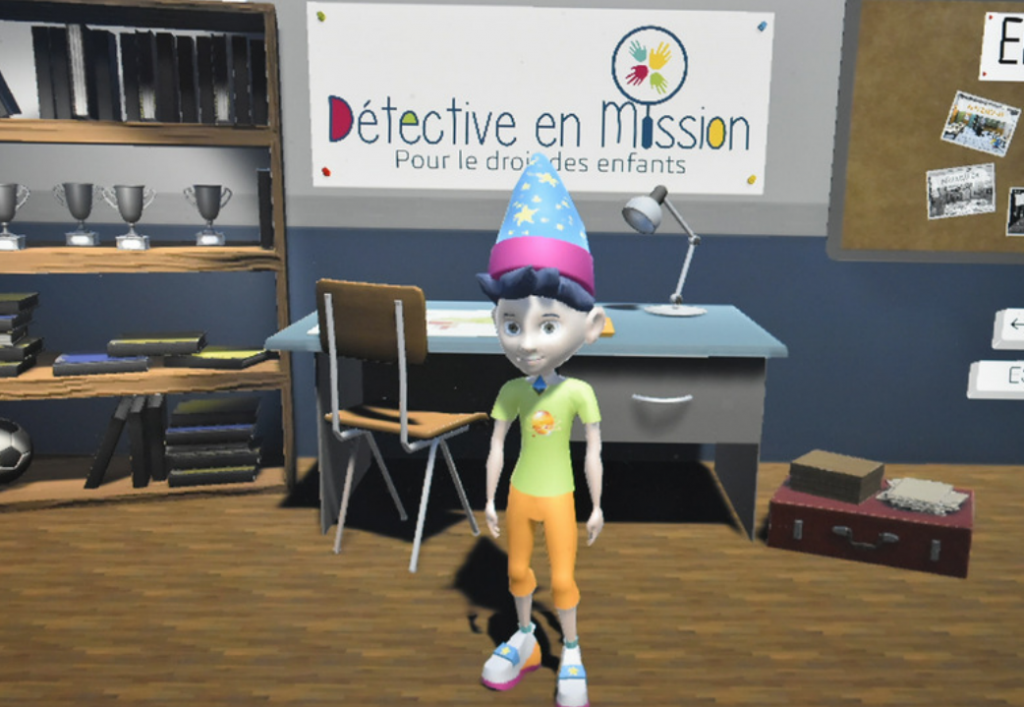
Il s’agit d’un jeu d’enquête dans lequel le personnage principal « Détective Pinpin » est confronté à plusieurs situations injustes au regard des droits de l’enfant. Plusieurs actions sont alors proposées pour réagir à la situation. L’objectif est de choisir, parmi les propositions, l’action que le personnage trouve la meilleure pour résoudre l’injustice. Lorsque l’enfant choisit la meilleure proposition, il passe au prochain niveau et obtient un trophée d’or. Chacun des cinq niveaux représente une situation propre au quotidien des jeunes tel que l’entraînement sportif ou l’utilisation des réseaux sociaux.
Pensée pour des enfants âgés de 7 à 11 ans, le jeu est disponible gratuitement en ligne à l’adresse https://jeu.ibcr.org/ (en français).
Lancement officiel
Impliqués dans toutes les étapes de création, les enfants se sont également vu confier le lancement officiel du jeu. L’école Saint-Fabien disposant de matériel d’enregistrement radio professionnel, l’événement a pris la forme d’une émission de radio animée par deux élèves de 4e année, Anaïs et Xavier, mêlant entrevues avec des membres de l’IBCR et de l’école Polytechnique de Montréal, reportages sur les droits de l’enfant et retours des élèves de chaque école sur leur expérience de participation à ce projet.
Les jeunes présentateurs ont animé l’émission avec professionnalisme, tant dans la présentation du contexte de création du jeu vidéo que dans les questions posées aux invités. Les moments d’échanges étaient entrecoupés de pauses musicales liées aux droits de l’enfant. Un moment fort en émotions pour le public présent et les parties prenantes impliquées qui a pu être partagé avec l’ensemble de l’école Saint-Fabien, puisque l’émission était retransmise en direct dans toute l’école.
Pour écouter l’émission de radio, c’est par ici.
Prochaines étapes
Le jeu sera diffusé dans un premier temps auprès des commissions scolaires du Québec, d’organismes communautaires et d’organisations de protection de l’enfant. Il sera accompagné d’un document d’appui introduisant la Convention relative aux droits de l’enfant ainsi que du mode d’emploi du jeu. Bien que pouvant être joué en toute autonomie par des enfants, le jeu pourra également s’intégrer dans le cadre de programmes pédagogiques ou d’activités de sensibilisation à la promotion et à la protection des droits de l’enfant.
Dans une deuxième phase, l’IBCR prévoit de traduire le jeu en plusieurs langues pour une diffusion mondiale, notamment au travers d’organisations partenaires du Bureau.
Pour voir une courte présentation du jeu, c’est par ici.

Sur le même sujet, Carrefour éducation vous propose des activités pédagogiques à faire en classe: Les droits des enfants, ici et ailleurs ainsi que Comprendre pour agir: les droits des enfants.



